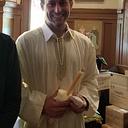Montenegro- Europe’s Overlooked Protest Story of 2020
This story will sound familiar to many who follow international politics, especially in Europe in the year 2020 and in past years. A small country, one that came from the breakup of a larger Cold War nation, is roiled by protests and civil disobedience. The people appear to be fed up with the fact that they have been ruled by one leader, who has been in power for decades with no end in sight, and demand change and improvements to state of affairs that has become intolerable.
Does this above paragraph refer to the events that have taken place in Belarus, starting in early August of 2020? Or are they referring to the events of the Euromaidan uprising that took place in the Ukraine in 2013 and 14? In fact, they do not. Rather, they refer to the months-long protest movement that has taken place in the small, former Yugoslavian nation of Montenegro over the course of this year, culminating in elections where the nation’s longstanding leader Milo Đukanović suffered perhaps the greatest setback to his rule in almost thirty years.
Although he is called “the last dictator in Europe,” Aleksandr Lukashenko of Belarus is not, in fact, the longest standing European leader. No, that title would belong to Đukanović of Montenegro. Đukanović and his Democratic Party of Socialists have been in power ever since 1991, first when Montenegro was united with Serbia in the aftermath of the Yugoslavian breakup, and then later on as it became its own independent nation. Đukanović has held two different offices in that time, alternating between the offices of Prime Minister and President, the latter of which he currently holds.
Đukanović lacks the infamy in the West that is bestowed lately upon the likes of Lukashenko or Russian President Vladimir Putin, or of his onetime political ally, the late former President of Serbia Slobodan Milosevic. But that does not make him undeserving of infamy in his own right. His ties with the Montenegrin organized crime scene have been well documented in multiple outlets. This deep alleged corruption, among other factors was raised by some thinkers in the West as a cause to reevaluate Montenegro’s proposed incorporation into the NATO military alliance- after all, if a bloc that is allegedly meant to represent defense of democracy incorporated such a problematic member, would it not look hypocritical?
In the end, these warnings went unheeded and, with Đukanović’s support, the small Balkan nation was incorporated as a NATO member in June 2017. However, developments since then have only served to confirm those who worried about the questionable democratic status of Montenegro. In 2020, the think tank Freedom House downgraded Montenegro’s status from being “democratic” to a “hybrid regime”- also at the same time downgrading the status of fellow NATO member Hungary, where now-infamous Viktor Orban has not ruled for half as long as Đukanović.
So what has proved to be the undoing of Đukanović and his party in this year’s Montenegrin elections? In 2019, the government had weathered a series of anti-corruption protests, and, haviing seemingly weathered those, decided inexplicably to provoke a confrontation with arguably the most vital institution in Montenegrin society- the Serbian Orthodox Church. A 2019 law, called “Law on Freedom of Religion or Belief and the Legal Status of Religious Communities,” allowed for the Montenegrin state to take ownership of church buildings and estates built before 1918.
In the eyes of the Church and many of its believing followers, this law would open the doorway to abuse of power and attacks on their religion. The response from Church leaders was swift and absolute in its condemnation of Đukanović and the government- a December Episcopal Council of the Church excommunicated Đukanović and other politicians who had supported the law’s passage. Furthermore, the Church called its flock out onto the streets to peacefully protest, and protest they did, even after the law was withdrawn once it became clear what a backlash it had provoked.
The protests continued throughout 2020, even through the arrival of the COVID-19 pandemic to Europe. Although the protesters did briefly leave the streets at the urging of Church leaders, they would resume later in the year, especially once (in their minds) the Montenegrin government was abusing COVID restrictions as a weapon in order to prevent further street demonstrations.
The protests would lead up to the stunning results in the 2020 Montenegrin parliamentary elections, which saw 75 percent turnout, the highest in the nation’s history. The opposition bloc of parties received (barely) one more seat than Đukanović’s DPS, which will give opposition leader Zdravko Krivokapić, a pro-Church academic who ran for political office for the first time this year, a chance to form a governing coalition. Dukanovic has, with reluctance no doubt, conceded that his party has lost the election.
Why is it that this Montenegrin protest movement has been, compared to many others, ignored or even treated with suspicion by much of the mainstream press and European establishment, as has been pointed out by even the pro-Western, European Commission-funded outlet Balkan Insight? Krivokapic has given interviews to Russian state media outlet Sputnik where he has called for better relations with that country (as well as Serbia) but his coalition in general has also called for continuing Montenegro’s trajectory towards integration with the EU- he is hardly embarking on an anti-Western crusade.
The change of government in Montenegro is a seminal event, a blow to the power of Europe’s longest-standing, most corrupt leader. Whether this truly is the end of Đukanović remains to be seen- the opposition will have a slim governing coalition at best, and may struggle to enact a large part of its agenda. But the fact remains that events in the country are taking a turn in a new direction, one that, should it play out, will likely be neither be entirely pro West nor pro East, but will certainly represent uncharted territory for the country and its people.
